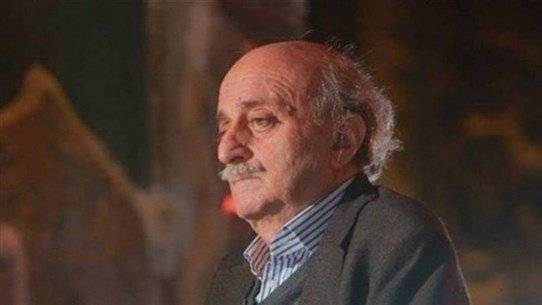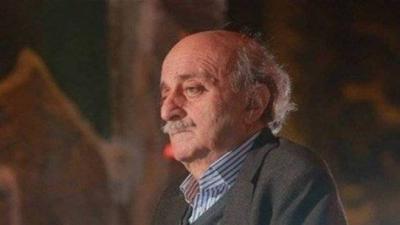About ten days before the polling boxes were opened, the Socialists were reviewing all possible scenarios that could arise from the elections, starting from the worst-case scenario where the number of "Democratic Gathering" deputies could decrease from nine to seven, moving through the acceptable scenario where the number could become eight, up to the most optimistic scenario of maintaining the same number of seats around the rectangular table in Taymour Jumblatt's office where "the Gathering" meetings are held... namely, nine.
To their surprise, the final counting hours revealed that the "Democratic Gathering" once again secured nine deputies, distributed as follows: Taymour Jumblatt, Marwan Hamadeh, and Bilal Abdullah from Chouf; Akram Shehayyeb and Raji Saad from Aley; Faisal al-Sayegh from Beirut II; Hadi Abu al-Hassan from Baabda; and Wael Abu Faour and Ghassan Skaff from Western Beqaa. Of course, this scenario had not occupied a serious part of the Socialists' calculations due to the challenges imposed by the electoral law and the difficult battle they faced in the mountain, due to the broad alliance formed by the March 8 forces. However, luck played a significant role in supporting the Socialists, as Talal Arslan was defeated without their intervention, and the electoral law granted them unexpected outcomes, such as the Orthodox candidate in the Western Beqaa, while Faisal al-Sayegh emerged from the "gap" of Beirut II due to the fierce competition for Sunni seats, depriving Khaled Qabani of the seat even though his list achieved a quota, despite al-Sayegh exceeding the expected number of preferential votes tracked by the Socialist apparatus.
A Socialist leader stated that the party waged an extremely difficult battle, but it was fully aware of all its complications and challenges, which begin with the collapse occurring at all levels and end with the political siege that the rivals attempted to impose around Mukhtara. Ironically, it turned against them, leaving the constitutional card in the hands of Walid Jumblatt, despite the joining of two deputies from the "Revolutionary Movement" to the new parliament, namely Mark Dowe and Firas Hamdan.
The leader noted that Walid Jumblatt was fully aware of the difficulties of engaging with the people on the ground under these circumstances. Therefore, he implemented an exceptional plan immediately after the events of October 17, ensuring that the people of the mountain were not abandoned and addressing their needs on all levels—health, educational, and living. He also took into account the political discourse's necessities concerning people's aspirations and fears while the deputies of the "Democratic Gathering" attempted to align this movement through legislative efforts that resonate with the people's hopes. Additionally, Taymour Jumblatt's tour in recent weeks, which did not spare any town or village, significantly contributed to bringing him closer to the people and breaking down barriers, thus enhancing the party's position among its base in the mountain.
In essence, Socialists assert that the party's "Socialist" electoral campaign was a comprehensive development, legislative, and political endeavor. Thus, the results, in line with aspirations, demonstrated that the party remains the strongest in the mountain, serving as a leverage for the list amid the retreat of the "Future Movement" and the focus of the "Forces" on their candidates, as evidenced by the numbers.
In 2018, the list achieved approximately 99,000 votes, including about 18,000 preferential votes for George Adwan and Anis Nassar. At that time, the "Future Movement" was a partner in its composition, where Mohammad al-Hajjar secured about 10,000 preferential votes. Last Sunday, the list achieved around 83,000 votes, including about 20,000 votes each for Adwan and Nazih Metta. This indicates that the "Progressive" party has not lost its footing, while Mark Dowe swept from various plates, and Halima Qaqour built her parliamentary seat on the ruins of the "Future Movement." It is also likely that Najat Aoun Seliba drew from the Aounists and specifically from Mario Aoun's base... and of course, the three benefited from the diaspora's contributions.
The Socialists see the significance of these results lies in their response to the campaign against the party, which was expressed by the broad alliance that included the "Free Patriotic Movement," Talal Arslan, and Wiam Wahhab. This reflected a rallying of support among the Jumblatt base, reaffirming the leadership of Mukhtara after fighting the battle independently (the Forces directed their votes in favor of their candidates) and successfully managing it (the votes were distributed almost equally between Taymour, with 12,000 preferential votes, and Marwan Hamadeh, with 11,000 preferential votes, to prevent breaches).
As a result, the "Democratic Gathering" returned to the House of Representatives as a "balancing force," especially since it will be difficult for the new change bloc to unite its ranks to become "the second egg," while the parliamentary majority will be dynamic and based on "cases."




